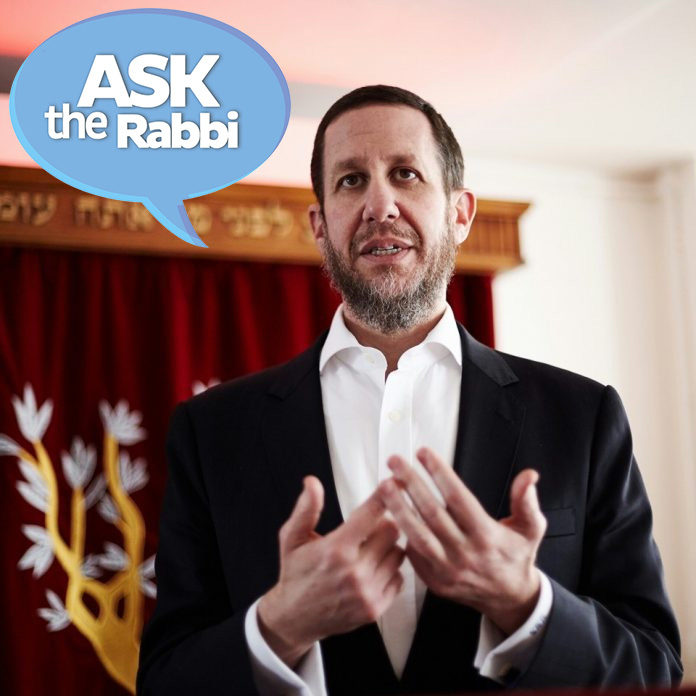
Dear Rabbi
I’d like your position on quinoa on Pesach please. I’ve heard different opinions and I am left a little confused.
Stacey
Dear Stacey
A few years ago many Rabbis ruled that quinoa is not considered kitniyos and may therefore be used on Pesach. Most of the quinoa comes from Peru and Bolivia and is grown in areas where other (problematic for Pesach) grains were generally not grown. However, as the popularity of quinoa has risen, this is no longer the case. This was confirmed by Kashrus authorities who visited Bolivia and found that barley does indeed grow in those areas. It was also discovered that some farmers cover their quinoa with barley or oats to keep the birds from eating the quinoa while it dries. Finally, there is a concern that the sacks used to transfer the quinoa may have been previously used to carry barley or oats.
It has therefore now become imperative that the only way to allow quinoa for use on Pesach is to track the quinoa from certain farms that are free from the aforementioned concerns. In other words you need to look for an actual certification to show that it is specially approved.
Dear Rabbi
As a mother I find I am very close to my oldest daughter and feel detached from my two boys. I don’t know if there’s something wrong with me or maybe just a female bonding thing. I am sure it has nothing to do with my own childhood. As an only child my parents always showed me a lot of love.
Liana
Dear Liana
Actually it probably has everything to do with your childhood. As an only child you probably longed for a sister and are filling that void with your daughter. There’s nothing wrong in being ‘best friends’ with your kid. But they also need to know the boundaries and that Mom is still Mom.
Moreover, as you recognise that one’s childhood experiences can spill over into their adulthood where they are likely to repeat patterns, you need to consider how your boys are feeling and how your detachment from them is going to impact them as loving fathers in their future. Also, have you ever considered how your sons feel toward your daughter in seeing the attention she gets which they probably crave yet are being denied? In the words of the Talmud: Rav said that a person should never single out one child among his other children, for on account of the small weight of silk (think techni-colour dreamcoat) that Jacob gave Joseph more than he gave the other sons his brothers became jealous of Joseph and the matter resulted in the Israelites’ descent into Egypt. I appreciate that different feelings for different children are hard to control, but you can certainly make an effort in how you express your feelings in the way you relate to your children. You might benefit from extra counselling and in the meantime talk to your boys, tell them you love them, give hugs. Do it all now before they “grow out of it.” I defy any boy whether 4, 14, or 44 to say he doesn’t appreciate his mother’s hugs.
Dear Rabbi
Can you tell me please the author and origin of the song Chad Gadya? I find it rather childish and really part of what we do to keep kids up at the Seder. Am I right?
Jeremy
Dear Jeremy
The author of the song is unknown but it is recorded already in Haggadas as far back as the 1500’s. Inasmuch as it may seem to be a Dr. Suess nursery rhyme (am I still allowed to mention his name?) in reality it is a song of deep meaning.
The great eighteenth century scholar and mystic, Rabbi Chaim Dovid Azulai (Chida) writes how someone once mocked the significance of the song, and instructed that the man apologise and ask forgiveness because of the profundity of the song.
There are a number of explanations offered for this song. One is that the ‘kid’ refers to the Jewish nation, the ‘father’ is G-d and the two coins refer to the two Tablets upon which the Ten Commandments were inscribed. The various things that come thereafter – the cat, dog, stick etc. refer to the various nations that sought to persecute us through the generations. Ultimately of course G-d destroys them and we live to tell the tale. It all began with the Exodus from Egypt and so we conclude the Seder reflecting on our post-Egypt reality.
Even as Seder night brings with it its own sense of serenity and security we cannot ignore the reality that we are after all still in Exile and endure our own fair share of persecution in various forms. We therefore sing the Chad Gadya to remind ourselves that just as G-d took us out from Egypt He will always continue to protect us as we live in the belief and prayer that Next Year in Jerusalem.









